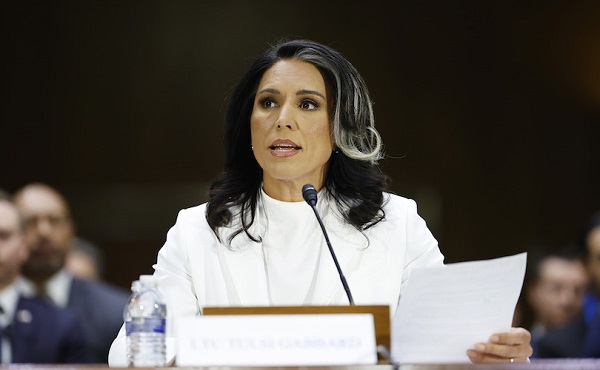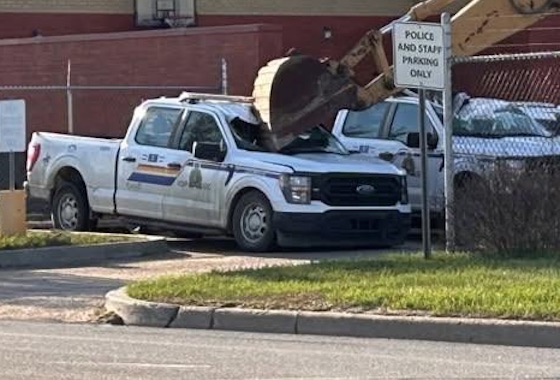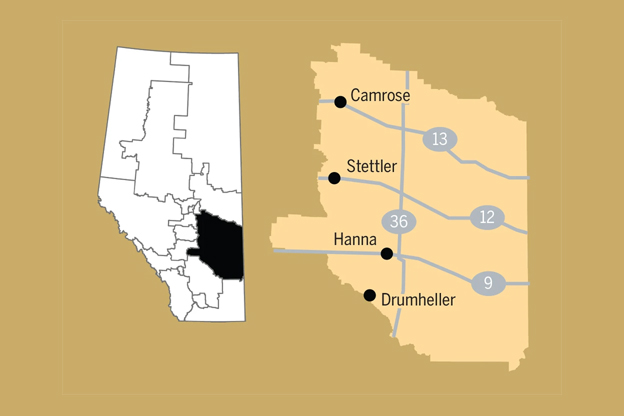Great Reset
Government Admission: Biden Parole Flights Create Security ‘Vulnerabilities’ at U.S. Airports Government Admission: Biden Parole Flights Create Security ‘Vulnerabilities’ at U.S. Airports

From the Center for Immigration Studies
DHS still refusing to say which airports are receiving inadmissible aliens from abroad
But while large immigrant-receiving cities and media lay blame for the influx on Texas Republican Gov. Greg Abbott’s busing program, CBP has withheld from the Center – and apparently will not disclose – the names of the 43 U.S. airports that have received 320,000 inadmissible aliens from January through December 2023, nor the foreign airports from which they departed. The agency’s lawyers have cited a general “law enforcement exception” without elaborating – until recently – on how releasing airport locations would harm public safety beyond citing “the sensitivity of the information.”
Now, though, CIS’s litigation has yielded a novel and newsworthy answer from the government: The public can’t know the receiving airports because those hundreds of thousands of CBP-authorized arrivals have created such “operational vulnerabilities” at airports that “bad actors” could undermine law enforcement efforts to “secure the United States border” if they knew the volume of CBP One traffic processed at each port of entry.
In short, the Biden administration’s legally dubious program to fly inadmissible aliens over the border and directly to U.S. airports has allegedly created law enforcement vulnerabilities too grave to release publicly, lest “bad actors” take advantage of them to inflict harm on public safety. Or, more specifically, here’s how CBP’s lawyers, in email communications with CIS and summarized in a CIS Joint Status Filing, characterized FOIA’s law enforcement exception (b)(7)(E) in explaining their refusal to release just the domestic U.S. airport locations:
Exception (b)(7)(E) has been applied to the identifying information for air ports of entry, which, if disclosed would reveal information about the relative number of individuals arriving, and thus resources expended at particular airports which would, either standing alone or combined with other information, reveal operational vulnerabilities that could be exploited by bad actors altering their patterns of conduct, adopting new methods of operation, and taking other countermeasures, thereby undermining CBP’s law enforcement efforts to secure the United States borders.
The agency’s attorneys floated a similar argument for withholding the locations of foreign departure airports, adding only that “bad actors” abroad who found out about the “resources expended toward travelers arriving from particular airports” could “extrapolate” from the numbers leaving foreign airports to identify the receiving U.S. airports and then undermine law enforcement’s ability to secure the border (which includes international airports).
The program at the center of the FOIA litigation is perhaps the most enigmatic and least-known of the Biden administration’s uses of the CBP One cell phone scheduling app, even though it is responsible for almost invisibly importing by air 320,000 aliens with no legal right to enter the United States since it got underway in late 2022. It remains part of the administration’s “lawful pathways” strategy, with its stated purpose being to reduce the number of illegal border entries between ports of entry. The countries whose citizens are eligible are Cuba, Haiti, Venezuela, Nicaragua, El Salvador, Guatemala, Honduras, Colombia, and Ecuador.
Under these legally dubious parole programs, aliens who cannot legally enter the country use the CBP One app to apply for travel authorization and temporary humanitarian release from those airports. The parole program allows for two-year periods of legal status during which adults are eligible for work authorization.
The government characterizes these programs as “family reunification programs”.
While seven of the nationalities, excluding Venezuelans and Nicaraguans, can claim eligibility under older family reunification parole programs, all can also just fly in if they can show they have a non-family financial sponsor (which can even be “an organization, business, or other entity”) and meet other requirements, such as owning a valid passport and passing security checks based on biometric information provided through CBP One.
Upon receiving authorization from Washington, they buy air passage to U.S. international airports where CBP personnel process them for release in short order. All are said to be responsible for paying for their own airfare.
They and inadmissible aliens from many dozens of other countries also get this parole benefit at eight U.S.-Mexico land ports of entry. That separate parole program has brought in another 420,000 immigrants from nearly 100 nations from May 2021 through December 2023, according to CIS lawsuit data updated through December 2023. (See links to the 2023 report below, which reflects data through August)
For most of the past year, big-city mayors and state governors have loudly complained about the hundreds of thousands of foreigners showing up in need of housing, food, medical treatment, clothing, and education, placing extraordinary unfunded financial burdens on local populations. Routinely, politicians and major media outlets have laid blame for the influx on Texas Gov. Greg Abbott’s busing program.
But the airport location information would undoubtedly provide a more accurate and complete picture of what is happening, though the administration would not be able to blame the Texas governor for these arrivals.
The redacted records received by CIS show a clear preference for some airports over others, with a dozen unnamed facilities receiving most of the 320,000.
Release by the government of the airport data would serve an important public interest in that it would provide voters and public officials with information to pressure the Biden government to reduce monthly arrival rates into their cities and states.
Colin M. Farnsworth, CIS’s Chief FOIA Counsel, said the Center rejects the government’s explanation about bad actors exploiting “operational vulnerabilities” at airports on grounds that CBP pre-screens and pre-schedules the arrival of CBP One applicants at each port of entry. He said CIS will litigate for a total release of the airport information.
Bad actors already have access to airport travel volumes, through CBP’s own “Traveler and Conveyance Statistics website.” Its statistics for cities whose travails with migrant arrivals are well-publicized show striking airport arrival increases from FY 2022, before the airlift program, through 2023.
Boston airports, for instance, spiked from 2.3 million during FY 2022 to 3.3 million in 2023, the public CBP website shows. Chicago, another migrant hotspot, rose from 6.3 million airport travelers in FY2022 to 7.9 million in 2023. New York City airports spiked from 17.7 million airport arrivals in 2022 to 22.9 million in 2023.
Related reports from Center for Immigration Studies FOIA litigation are based on data provided through August 2023 and the early part of September 2023. CBP has since provided data for all of September, October, November, and December 2023, which are reflected above in this report.
The following are the prior reports reflecting the earlier data:
- New Records: Biden DHS Has Approved Hundreds of Thousands of Migrants for Secretive Foreign Flights Directly into U.S. Airports
- New Records Unveil Surprising Scope of Secretive ‘CBP One’ Entry Scheme
- Thousands of ‘Special Interest Aliens’ Posing Potential National Security Risks Entering via CBP One App
- Powerful Senator Demands DHS Answer Questions About ‘Special Interest Alien” Approved Entries in CBP One app.
- Why is Biden Quietly Granting ‘Humanitarian Protection’ to Thousands of Mexicans?
Business
Top Canadian bank ditches UN-backed ‘net zero’ climate goals it helped create
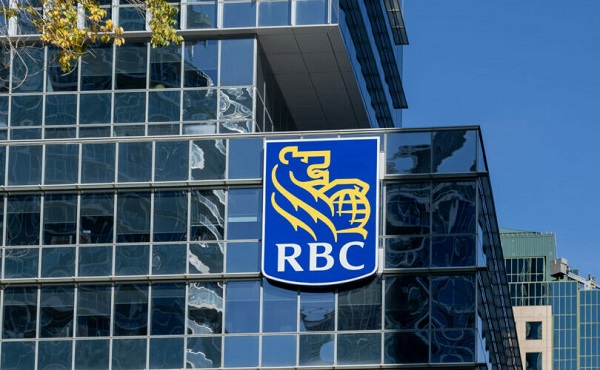
From LifeSiteNews
RBC’s dropping of its ‘net zero’ finance targets came just one day after the Liberal Party under Mark Carney was re-elected in Canada.
Just one day after the re-election of the Liberal Party under Mark Carney, the Royal Bank of Canada joined the growing list of top banks withdrawing from a United Nations-backed “net zero” alliance that supports the eventual elimination of the nation’s oil and gas industry in the name of “climate change.”
The Royal Bank of Canada (RBC) on Tuesday quietly dumped its UN-backed Net-Zero Banking Alliance (NZBA) sustainable finance targets, which called for banks to come in line with the push for net-zero carbon emissions by 2050. The NZBA is a subgroup of the Glasgow Financial Alliance for Net Zero (GFANZ), which Carney was co-chair of until recently.
RBC’s departure comes despite the fact that it was one of the NZBA’s founding members.
RBC joins Toronto-Dominion Bank (TD), Bank of Montreal (BMO), National Bank of Canada, and the Canadian Imperial Bank of Commerce (CIBC) who earlier in the year said they were withdrawing from the NZBA.
The bank announced the move away from a green agenda in its 2024 sustainability report, noting it would no longer look to pursue a $500 billion sustainable finance goal. It cited changes to Canada’s federal Competition Act as the reason.
The changes to the act, known as the “greenwashing law,” now mandate that companies provide proof of their environmental claims.
“We have reviewed our methodology and have concluded that it may not have appropriately measured certain of our sustainable finance activities,” noted RBC in its report.
RBC also noted it would not make public any of its metrics regarding its energy supply ratio.
Monday’s election saw Liberal leader Carney beat out Conservative rival Poilievre, who also lost his seat. The Conservatives managed to pick up over 20 new seats, however, and Poilievre has vowed to stay on as party leader, for now.
Carney worked as the former governor of the Bank of Canada and Bank of England and spent many years promoting green financial agendas.
The GFANZ was formed in 2021 while Carney was its co-chair. He resigned from his role in the alliance right before he announced he would run for Liberal leadership to replace former Prime Minister Justin Trudeau.
Large U.S. banks such as Morgan Stanley, JPMorgan Chase & Co, Wells Fargo and Bank of America have all withdrawn from the group as well.
Since taking office in 2015, the Liberal government, first under Trudeau and now under Carney, has continued to push a radical environmental agenda in line with those promoted by the World Economic Forum’s “Great Reset” and the United Nations’ “Sustainable Development Goals.” Part of this push includes the promotion of so called net-zero energy by as early as 2035.
armed forces
Yet another struggling soldier says Veteran Affairs Canada offered him euthanasia

From LifeSiteNews
‘It made me wonder, were they really there to help us, or slowly groom us to say ‘here’s a solution, just kill yourself.’
Yet another Canadian combat veteran has come forward to reveal that when he sought help, he was instead offered euthanasia.
David Baltzer, who served two tours in Afghanistan with the Princess Patricia’s Canadian Light Infantry, revealed to the Toronto Sun that he was offered euthanasia on December 23, 2019—making him, as the Sun noted, “among the first Canadian soldiers offered therapeutic suicide by the federal government.”
Baltzer had been having a disagreement with his existing caseworker, when assisted suicide was brought up in in call with a different agent from Veteran Affairs Canada.
“It made me wonder, were they really there to help us, or slowly groom us to say ‘here’s a solution, just kill yourself,” Baltzer told the Sun.“I was in my lowest down point, it was just before Christmas. He says to me, ‘I would like to make a suggestion for you. Keep an open mind, think about it, you’ve tried all this and nothing seems to be working, but have you thought about medical-assisted suicide?’”
Baltzer was stunned. “It just seems to me that they just want us to be like ‘f–k this, I give up, this sucks, I’d rather just take my own life,’” he said. “That’s how I honestly felt.”
Baltzer, who is from St. Catharines, Ontario, joined up at age 17, and moved to Manitoba to join the Princess Patricia’s Canadian Light Infantry, one of Canada’s elite units. He headed to Afghanistan in 2006. The Sun noted that he “was among Canada’s first troops deployed to Afghanistan as part Operation Athena, where he served two tours and saw plenty of combat.”
“We went out on long-range patrols trying to find the Taliban, and that’s exactly what we did,” Baltzer said. “The best way I can describe it, it was like Black Hawk Down — all of the sudden the s–t hit the fan and I was like ‘wow, we’re fighting, who would have thought? Canada hasn’t fought like this since the Korean War.”
After returning from Afghanistan, Baltzer says he was offered counselling by Veteran Affairs Canada, but it “was of little help,” and he began to self-medicate for his trauma through substance abuse (he noted that he is, thankfully, doing well today). Baltzer’s story is part of a growing scandal. As the Sun reported:
A key figure shedding light on the VAC MAID scandal was CAF veteran Mark Meincke, whose trauma-recovery podcast Operation Tango Romeo broke the story. ‘Veterans, especially combat veterans, usually don’t reach out for help until like a year longer than they should’ve,’ Meincke said, telling the Sun he waited over two decades before seeking help.
‘We’re desperate by the time we put our hands up for help. Offering MAID is like throwing a cinderblock instead of a life preserver.’ Meincke said Baltzer’s story shoots down VAC’s assertions blaming one caseworker for offering MAID to veterans, and suggests the problem is far more serious than some rogue public servant.
‘It had to have been policy. because it’s just too many people in too many provinces,” Meincke told the Sun. “Every province has service agents from that province.’
Veterans Affairs Canada claimed in 2022 that between four and 20 veterans had been offered assisted suicide; Meincke “personally knows of five, and said the actual number’s likely close to 20.” In a previous investigation, VAC claimed that only one caseworker was responsible—at least for the four confirmed cases—and that the person “was lo longer employed with VAC.” Baltzer says VAC should have military vets as caseworkers, rather than civilians who can’t understand what vets have been through.
To date, no federal party leader has referenced Canada’s ongoing euthanasia scandals during the 2025 election campaign.
-

 COVID-192 days ago
COVID-192 days agoStudy finds nearly half of ‘COVID deaths’ had no link to virus
-

 Energy2 days ago
Energy2 days agoOil tankers in Vancouver are loading plenty, but they can load even more
-

 Alberta2 days ago
Alberta2 days agoCharges laid in record cocaine seizure
-

 2025 Federal Election1 day ago
2025 Federal Election1 day agoCarney says Liberals won’t make voting pact with NDP
-
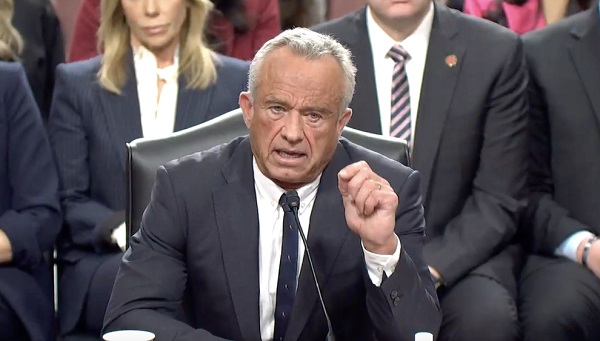
 Autism1 day ago
Autism1 day agoNIH, CMS partner on autism research
-
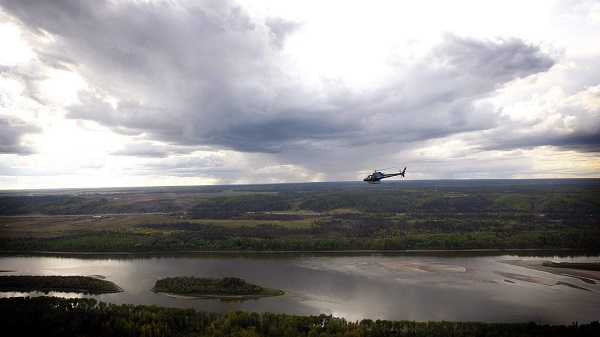
 Alberta2 days ago
Alberta2 days agoEnergy projects occupy less than three per cent of Alberta’s oil sands region, report says
-

 Business18 hours ago
Business18 hours agoOttawa foresees a future of despair for Canadians. And shrugs
-

 International2 days ago
International2 days agoIce Surprises – Arctic and Antarctic Ice Sheets Are Stabilizing and Growing

